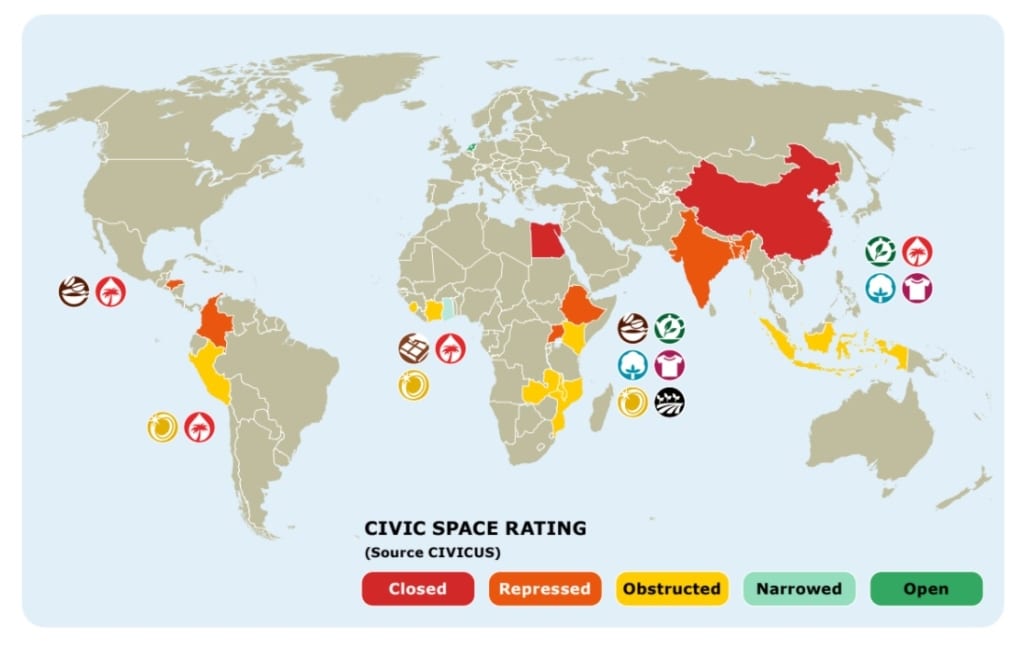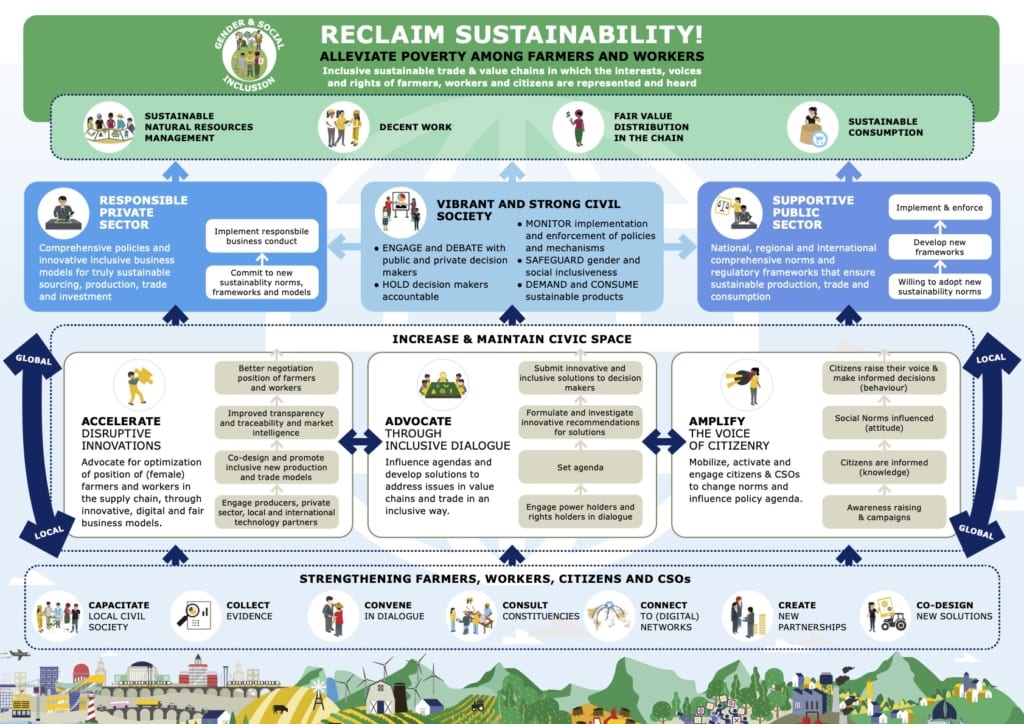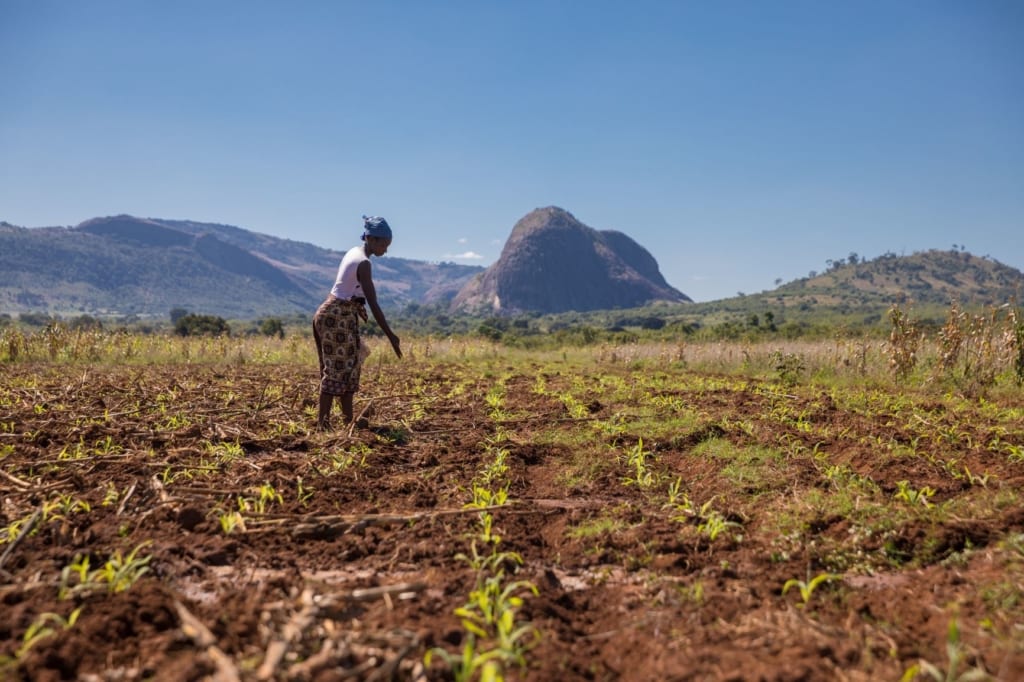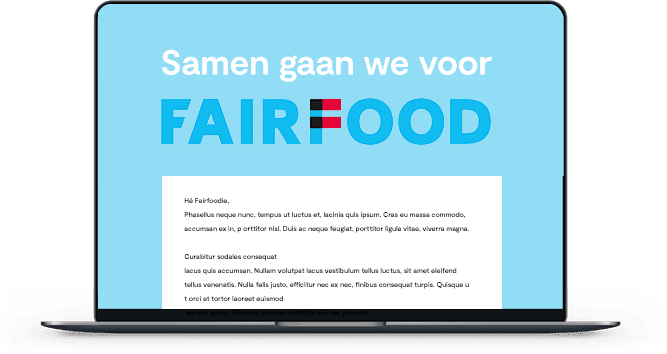RECLAIM Sustainability! Tijd om de boer meer zeggenschap te geven
Together with Solidaridad, TrustAfrica and Business Watch Indonesia, we are excited to launch our new joint programme, RECLAIM SUSTAINABILITY! This five-year programme (2021-2025) will be implemented in strategic partnership with the Dutch Ministry of Foreign Affairs, within their Policy Framework Strengthening Civil Society. With this programme, we strive to foster genuine and inclusive sustainability in global value chains, where the voices of farmers, miners, workers and citizens are well represented in decision making, and civil society is strengthened.
“Engaging with and raising the participation of impacted communities has been a continuous challenge in sustainability initiatives.”
Veronika Ratri, Business Watch Indonesia
In recent years, sustainability has become something of a buzzword in international supply chains, the media, and consumer marketing. However, this has not yet created the desired impact, for there can be no genuine sustainability when the people who produce the products consumed by us all continue living in poverty; when natural resources are not managed sustainably, civic space in many countries is limited, and the working conditions of millions of producers are abject. Farmers, miners and workers are key players in tackling major challenges such as poverty and climate change, yet their voices are often unheard. The global COVID-19 pandemic has further exacerbated the situation of millions of people worldwide.
“The pandemic is magnifying existing inequalities in food supply chains. While we are all highly dependent on smallholder farmers and workers for our food, they find themselves in exceptionally vulnerable positions. We remain optimistic, as we recognise that the world is gaining momentum to actually build up better as we collectively hit rock bottom. With greatly improved awareness for sustainability from everyone involved in global supply chains – consumers, government and private sector – we can make change happen. Our joint programme taps into this momentum using smart innovations, thus heralding an era of truly inclusive supply chains, in which farmers and workers reclaim their rightful voice.”
Sander de Jong, Fairfood director
Systemic and transformative change
The enormity of these persisting challenges makes it imperative to advocate for genuine and inclusive sustainability. We must build back better, and systemic and transformative change is essential. With our joint RECLAIM SUSTAINABILITY! programme, we will work on fostering inclusive and sustainable value chains in which the interests, voices and rights of the farmers, workers, miners and citizens are represented and heard in decision making. We will focus our efforts on a number of essential thematic areas: sustainable use of natural resources, decent work, fair value distribution, and sustainable consumption. In all this, gender and social inclusion will also form an essential part of our work.
“Really, how can the producer be first when in fact they are often considered last in practically every aspect of the supply chain? For us in West Africa, we are really upbeat about the RS programme as it promises to create the ambience for us to work cooperatively with other stakeholders in order to elevate the position of farmers and other producers, so they are heard among the first, and have a significant share in the value created by 2025.”
Isaac Gyamfi, Solidaridad West Africa

Our consortium involves nine partners working closely together towards these joint goals: TrustAfrica, Business Watch Indonesia (BWI), Fairfood, Solidaridad West Africa, Solidaridad Southern Africa, Solidaridad East & Central Africa, Solidaridad Asia, Fundación Solidaridad Latinoamericana, and Solidaridad Europe. This programme will be implemented in a strategic partnership with the Dutch Ministry of Foreign Affairs, which provides the financial support for the programmes worldwide (a total of 53.7 million euros).
“I am very proud that we have such a strong consortium with organizations deeply rooted in the global South; together we will be able to make the voices of the South heard loud and clear and work towards more inclusive and sustainable supply chains! My ambition is to make a big leap towards a world where it is considered normal that we take into account the interests of the farmers and workers at the beginning of international value chains in all policy decisions that directly impact their livelihoods worldwide.”
Heske Verburg, Solidaridad Europe
Worldwide impact across value chains and three impact pathways
The RECLAIM SUSTAINABILITY! programme will be implemented in 17 selected countries across Africa, Asia and Latin America, as well as have a strategic role in Europe geared at amplifying the voices of producers and civil society in the South. We will work in the value chains of cocoa, coffee, tea, palm oil, cotton & textiles, and gold; with a special focus on the local food systems in Africa. Creating systemic and transformative change towards genuine sustainability requires cooperation on all levels involved: a responsible private sector, a vibrant and strong civil society, and a supportive public sector.
“I am excited to be part of the Reclaim Sustainability! programme as it strives to tackle the competing issues related to ensuring ‘sustainable supply chains’’ and creating opportunities for “sustainable livelihoods”. Our focus on a 4 P’s model considers the interests and benefits for the (P)ublic sector, (P)rivate sector, our (P)eople, as well as our landscapes and (P)laces. In the 21st century, we should not only build back better, but boldly, with intention, and inclusively, to ensure the voices from producer countries (mainly in developing countries) resonate in the global supply chains.”
Rachel Wanyoike, Solidaridad East and Central Africa

As programme partners, we will work on three impact pathways to reclaim sustainability:
- Accelerate disruptive solutions: Optimize the bargaining position of farmers and workers in the supply chain through supply chain innovations, e.g. digital tools and new ownership models, with a focus on gender and social inclusion.
- Advocate through inclusive dialogue: Influence the policy agenda and develop evidence-based solutions to address socio-economic and environmental shortcomings in trade and value chains.
- Amplify the voice of citizenry: Mobilize, activate and engage citizens and civil society organizations to change norms and influence the policy agenda.
“This programme presents a unique opportunity for us to move the needle in creating more equitable supply chains in Southern Africa and empower farmers and workers to be change agents, and beneficiaries of a more sustainable cotton, tea, and local foods sector. The coalitions of change coming from the partnerships we will forge, will support sustainable natural resource management, improvement towards decent work, fair value distribution within the supply chains and sustainable consumption.”
Mandla Nkomo, Solidaridad Southern Africa

“The most exciting thing about this programme for us at TrustAfrica is its great transformative potential. In the next five years, we should be seeing greater equity in the value chains that the programme is working on, to attain sustainable decent working conditions and living wages for all, fair value and economic justice. It is also about farmers and workers, women and men having a greater say and choice in how our economies work, and in redressing North-South imbalances and inequalities as we accelerate structural transformation and value addition in the South.”
Ebrima Sall, TrustAfrica
Impact-driven partnership
Our programme is driven by creating genuine and inclusive impact across the value chains of selected commodities and regions. By 2025, we strive to achieve the following:
- 35 inclusive regulatory frameworks developed, improved and implemented in 14 countries that regulate value distribution, fair and equal access to inputs, land and natural resources, decent working conditions and child labour;
- 16 new private sector policies developed that address decent work and child labour, fair value distribution, natural resource management and women inclusion;
- At least 100 local and international companies commit to improve transparency in the value chain;
- 20 innovative and inclusive technologies and innovations co-designed and implemented to enhance access to innovative solutions and best practices;
- 100 local multi-stakeholder dialogues initiated and strengthened to engage civil society and its agenda in debate with public and private decision makers;
- 100 million citizens in Europe, Africa and Asia reached to push the policy agenda around decent work and living income, influence societal and gender norms, and to produce and consume more sustainably;
- 200 civil society organizations in 17 countries with increased technical, operational and negotiation skills, and improved capacity to raise their voices and reach out to policy makers.
“Solidaridad Network Asia as Reclaim Sustainability partner from the region will work together with partners to catalyse change by empowering millions of farmers and workers in Tea, Palm, and Cotton & Textiles value chains to have better positioning and bargaining power while achieving decent living and working conditions. We believe that by 2025, through our efforts, there will be more transparent and just value chains that will be working together with civil society actors to achieve inclusive development and value distribution to build a vibrant and thriving society.”
Prashant Pastore, Solidaridad Asia
“In Latin America we will continue and leverage the results achieved over the last four years, with initiatives like PIM, the first platform for artisanal mining, Golden Synergies, Qori Suma in Peru, the Sustainable Trade Platform in Colombia, or MAPA (Mesoamerican Palm Oil Alliance) and ADVOCAFE, the sustainable coffee platform in Central America. Our overall goal is to engage key stakeholders, enable neutral dialogue to reach commitments and coordinate actions that breach shared sector or national gaps. And these commitments should translate into concrete private and public incentives for more inclusive and responsible production, be it in the shape of legal frameworks, financial schemes or sourcing guidelines, for example.”
Ada Lis Rosell, Fundación Solidaridad Latinoamericana



